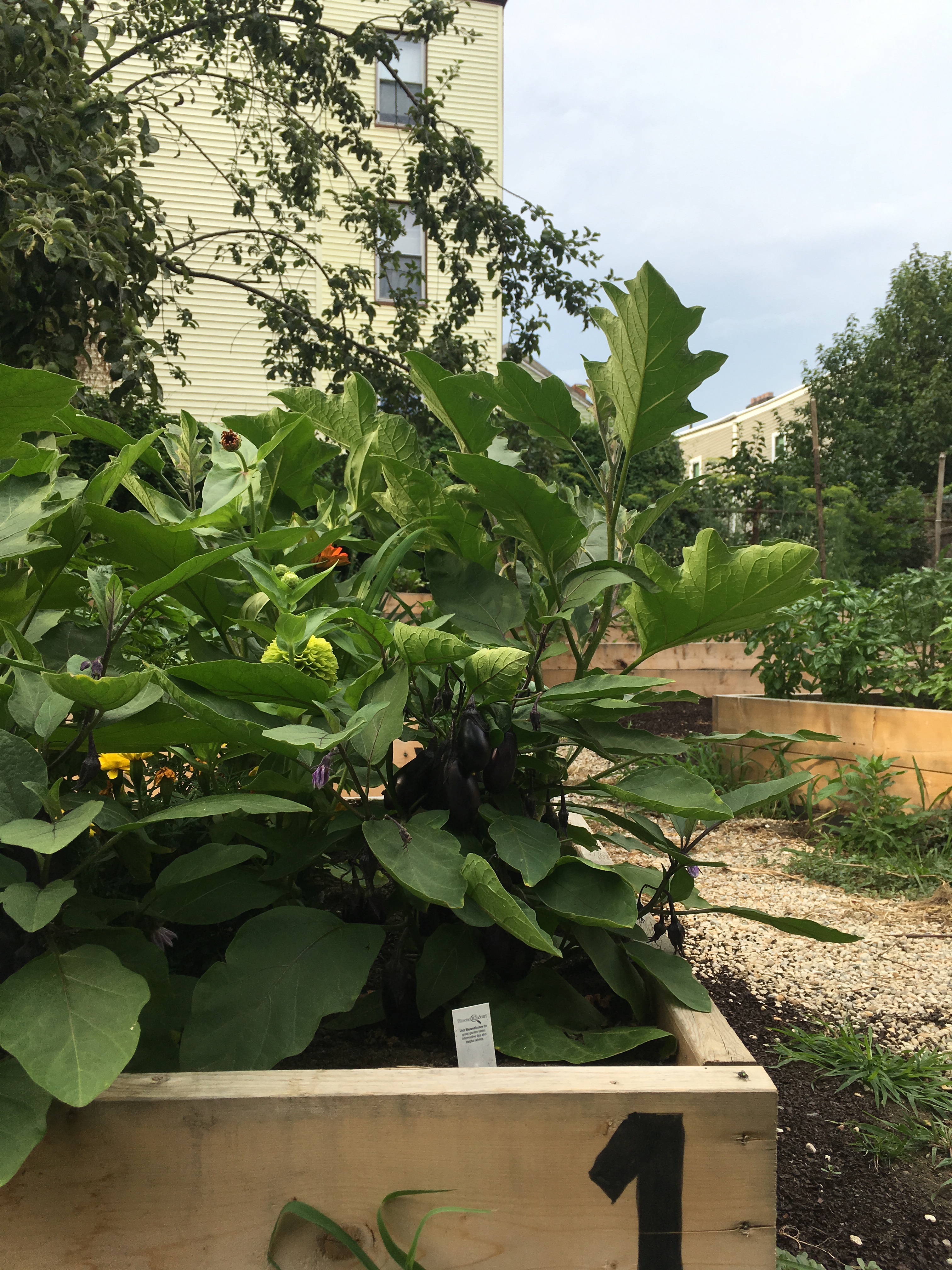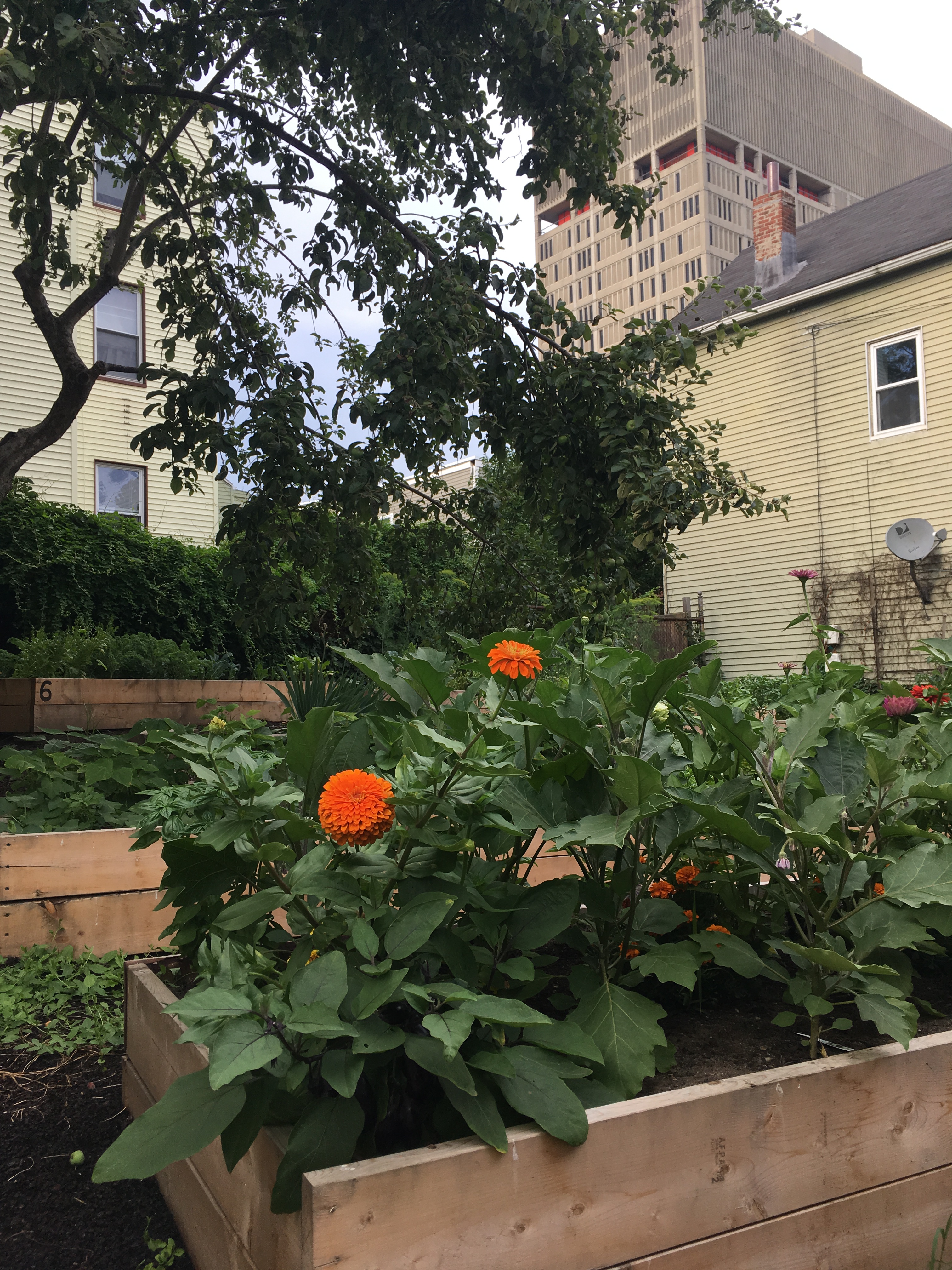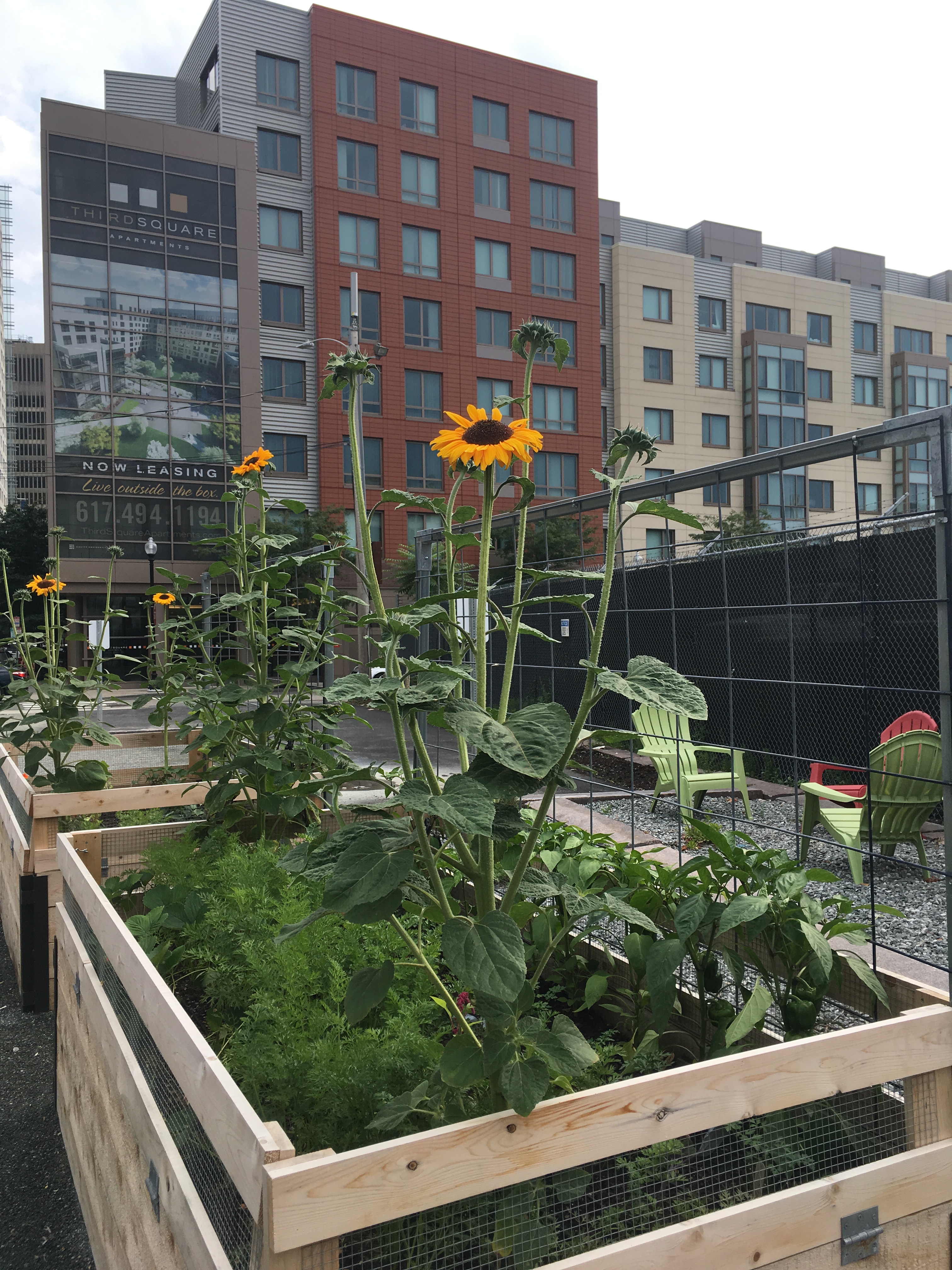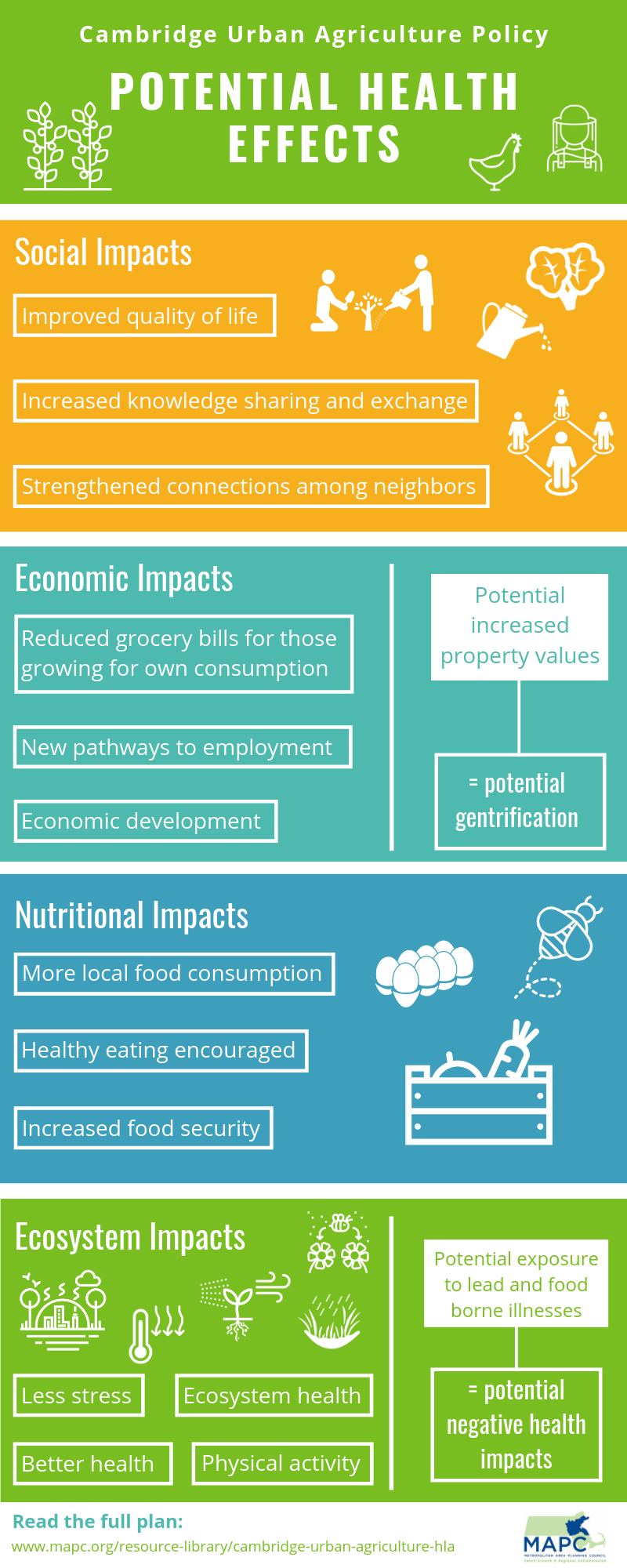


As the weather warms and the trees sprout leaves after long bare months, the city of Cambridge welcomes spring: sprouts and stakes appear in community gardens, bees buzz around their hives, hens peck in backyards, and urban farmers sell their wares from farm stands.
That’s what springtime in Cambridge could look like in a few years, as the city develops guidelines and policies allowing for farming, henkeeping, and the sale of agricultural products. The city has already successfully passed public health regulations and a zoning ordinance allowing for beekeeping.
Since 2017, MAPC has worked with the Cambridge Public Health Department and the Cambridge Urban Agriculture Task Force to examine how changes in urban agriculture policy could affect public health. Earlier this year, we released a health lens analysis describing potential effects and recommending steps the city can take to ensure that new policies are implemented in ways that promote health, mitigate potential risks, and promote equitable engagement in urban agriculture. You can read that full report here.
To understand the potential impacts that urban agriculture could have on the residents of Cambridge, MAPC and our partners engaged with citizens and stakeholders and dug into the data. Planners held focus groups and community meetings with urban agriculture practitioners and advocates, immigrant parents, and neighborhood groups to get their thoughts on the potential social, economic, nutritional, and environmental effects.
Equipped with the community’s views, the project team from Cambridge and MAPC gathered evidence in the form of urban agriculture and public health research, local reports, and local demographic and environmental characteristics. They used these two sources to generate evidence-based recommendations for making sure that new urban agriculture policies are implemented in ways that will most benefit public health.
The potential benefits of the policies are notable and – to a certain point – predictable. Urban agriculture could strengthen connections among neighbors, provide new pathways to employment, reduce grocery bills, reduce food insecurity, encourage local food consumption and healthy eating habits, increase biodiversity, improve air quality, moderate temperatures, and more. (Our adjacent infographic goes into more detail.)
But the policies could also pose risks in a city with income inequality and a high percentage of renters, the analysis showed. Urban agriculture can raise property values, potentially exacerbating gentrification and displacement in areas that are currently occupied mostly by low-income families and – disproportionately – people of color. Renters might have less freedom to participate in gardening, beekeeping, and henkeeping on their properties.
Many of the team’s recommendations are policies that would mitigate these potential risks, like targeting engagement and investment in low-income, food insecure neighborhoods, creating a fund to subsidize or cover costs of permitting and equipment, supporting renters and low-income residents with training and education, and making sure there are workforce training opportunities for new jobs that require certain skills but not high levels of education.
By thinking through the effects of new policies the way they have, the City of Cambridge can help amplify positive health effects, lessen negative effects, and ensure that the benefits of urban agriculture are extended to everyone.
More About HLAs
Health lens analyses (HLAs) can be integrated into policy development to anticipate the positive and negative effects the policy will have on public health. An HLA includes five stages: engagement, evidence gathering, recommendation generation, guiding recommendations through the decision-making process, and evaluating the actual impacts of the policy.
Interested in working with MAPC on an HLA? Reach out to Heidi Stucker at [email protected] to learn more!

